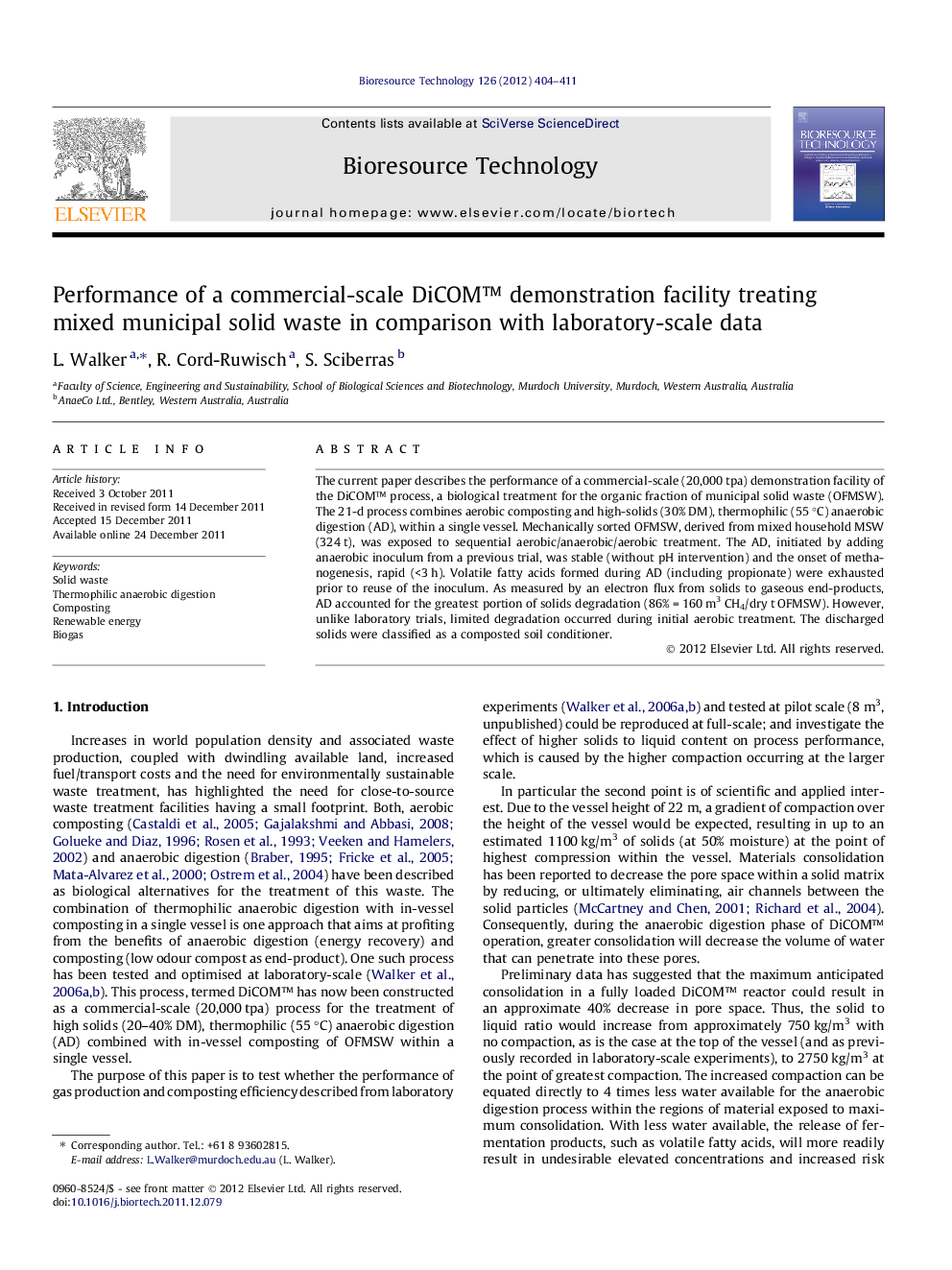| Article ID | Journal | Published Year | Pages | File Type |
|---|---|---|---|---|
| 681300 | Bioresource Technology | 2012 | 8 Pages |
The current paper describes the performance of a commercial-scale (20,000 tpa) demonstration facility of the DiCOM™ process, a biological treatment for the organic fraction of municipal solid waste (OFMSW). The 21-d process combines aerobic composting and high-solids (30% DM), thermophilic (55 °C) anaerobic digestion (AD), within a single vessel. Mechanically sorted OFMSW, derived from mixed household MSW (324 t), was exposed to sequential aerobic/anaerobic/aerobic treatment. The AD, initiated by adding anaerobic inoculum from a previous trial, was stable (without pH intervention) and the onset of methanogenesis, rapid (<3 h). Volatile fatty acids formed during AD (including propionate) were exhausted prior to reuse of the inoculum. As measured by an electron flux from solids to gaseous end-products, AD accounted for the greatest portion of solids degradation (86% = 160 m3 CH4/dry t OFMSW). However, unlike laboratory trials, limited degradation occurred during initial aerobic treatment. The discharged solids were classified as a composted soil conditioner.
► The performance of a lab-scale DiCOM™ process, was reproducible at full-scale. ► Higher solid–liquid ratio at full-scale did not result in process instability. ► Propionate degradation was not evident within the full-scale DiCOM™ reactor. ► Propionate was degraded outside the reactor averting buildup during liquor reuse. ► The DiCOM™ specific methane production was comparable to other reported systems.
